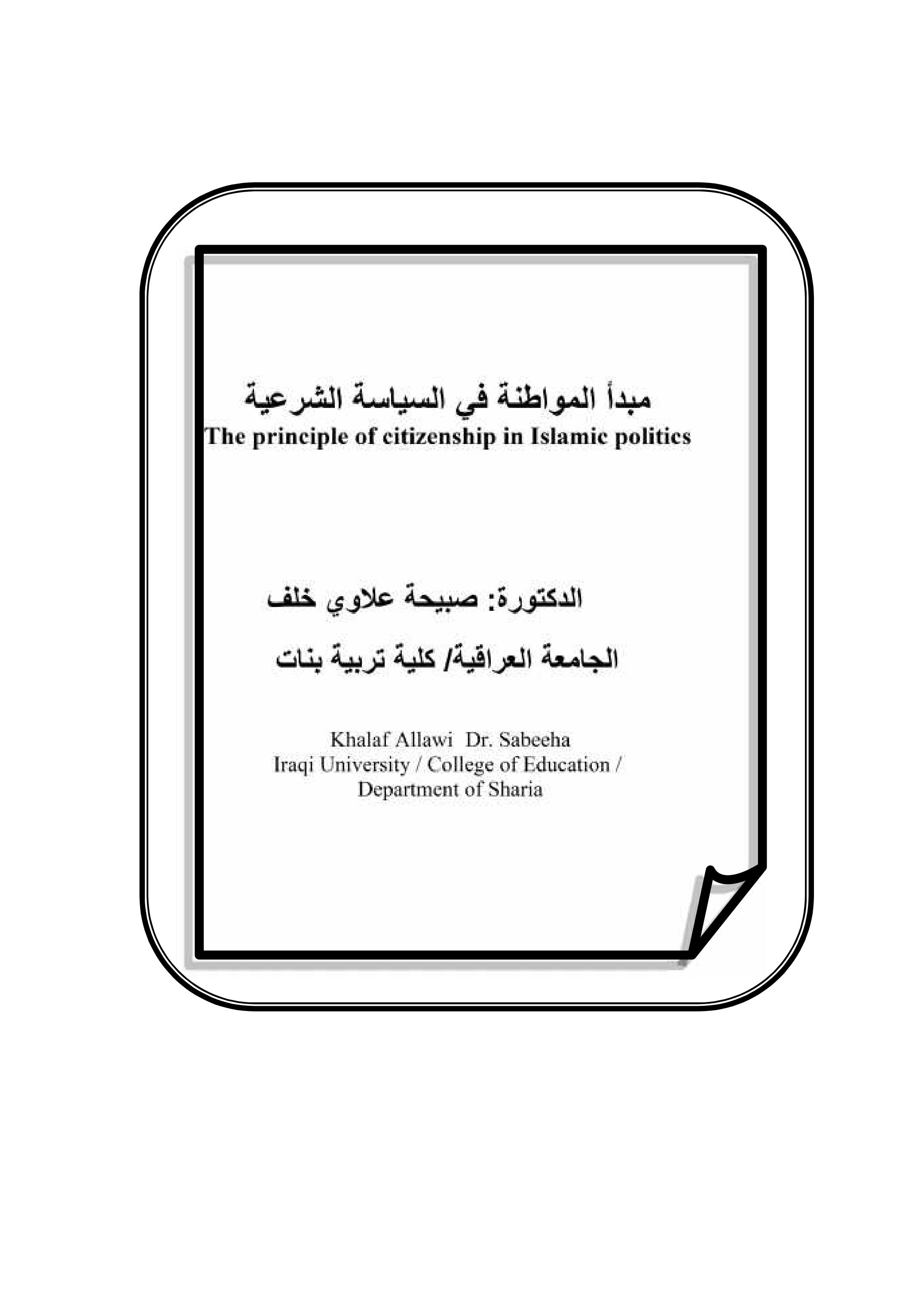The principle of citizenship in Shari'a policy
DOI:
https://doi.org/10.51930/jcois.2015.42.%25pAbstract
Jurists were unable to comprehend modern terminology and concepts to provide mature answers
On the questions and issues of the age, and what I want to research and raise it; an important and urgent subject, to crystallize the opinion jurisprudence
Islamic, which is the subject of citizenship. The globalization of the concept of citizenship, and the spread of special cultural differences,
The blurring of the identities and specificities of nations due to conflict, or political differences, often results in responses
This trend is inversely rooted and rooted, and as a result, the threat to one's religion or predecessors becomes threatened by one's culture,
Thus destroying the essence of his identity. Man has the highest rank in human history since his Creator chose him to be
The land is one of the creations of all the creatures, and it is entrusted with its architecture and the responsibility for the administration of justice rests upon it.
And the security in its place, the approach of the Lord's interpretation of the earth's architecture on the basis of the religious values of the generations
All human beings affirm that human dignity is safeguarded because it is the gift of God, and it is the strict criterion for the administration of justice
In recent times, I have raised an issue that may be new to our reality, but despite its modernity
Islamic jurisprudence, which is derived from a Shari'ah, came down to govern the land until God and its inheritors inherited it
These concepts
Western political systems are based on a concept of specific citizenship, and so decided in constitutions and documents
The Muslim scholar had to dig deeper into the origin and branches of the case and come up with a concept
A new origin stems from the Shari'a of Islam, encompassing the realities of reality.

.jpg)
2.png)






